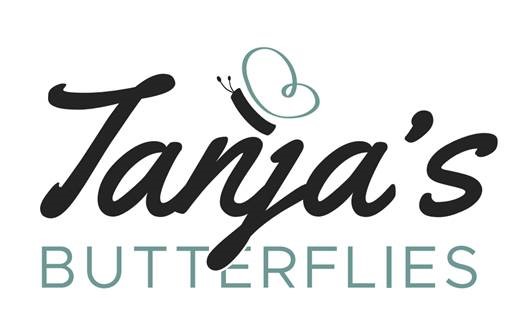
Addiction
If I told you that I drank an entire bottle of whisky before lunch to drown my sorrow several times a week, I guess I would get quite a few messages from people concerned about a potential alcohol addiction. Luckily, that is not the case.
I do, however, do sports almost every day and don’t feel at ease when I can’t move my body. I do catch myself taking out my phone several times an hour to look at it for no particular reason. I do feel FOMO when I don’t visit Linkedin for a day. Hardly a day goes by without me eating several servings of chocolate or sweets. Now, does this make me an addict?
As someone who has gone through an intense phase of anorexia in her teens that shifted into sports addiction leading to overtraining and running a marthon at 196 bpm pulse, I do consider myself at risk for different types of cross-addiction (cf. a study by the University of Columbia*).
Over the past decades, I have read several books on eating disorders, done my fair share of therapy and am still exposed to people who have engaged or are engaging in addictive behaviors in my extended circles. Yet, if you had asked me where to draw the line between addictive and non-addictive behavior, I wouldn’t have been able to answer. That is why I did some research recently, and I am happy to share my learnings with you.
How is addiction defined?
How many drinks per week can you have before you or others need to be worried? How much sports is too much? How much food is too little? There is a myriad of things we can get addicted to, including alcohol, gambling, gaming, sex, sports, meds, work, porn, adrenaline, shopping… the list goes on and on.
According to ChatGPT, “addiction is generally defined as a chronic, relapsing disorder characterized by compulsive and often harmful behavior despite negative consequences. It involves a strong and uncontrollable urge to engage in a particular activity or consume a substance, leading to dependence on that activity or substance.”
While there are specific criteria for certain forms of addiction (p.ex. a BMI > 17.5 for anorexia), for many types of addictive behavior we have to look at the combination of various factors. My research on the characteristics of addictive behavior brought up the following key traits that were mentioned in several podcasts and articles:
- compulsion (overwhelming urge or compulsion to engage in the addictive behavior or consume a substance)
- loss of control (unsuccessful attempts to cut back or quit)
- impaired functioning and continued use despite harm (ignoring a negative impact on health, relationships, work and other responsibilities etc, p.ex. training when injured)
- tolerance (requiring increased amounts or intensity to achieve the desired effect, p.ex. having to drink more and more alcohol to get into a similar state)
- withdrawal (physical, emotional, or psychological symptoms when not engaging in the addictive behavior)
My personal red flags additionally include the following warning signs:
- hiding how I interact with the substance/area of addiction (p.ex. secret binge eating etc)
- lying about what I do when asked about specific behavior
Now, do we need to tick all of the boxes mentioned above before we start getting worried? Or should we all consider ourselves addicts because we get a headache if we don’t get our morning coffee, daily dose of social media and the complimentary chocolate bar?
Of course, the context and severity of addictive behaviors are crucial. A behavior that might be considered a mild habit for one person could be more problematic for another if it interferes with daily life, relationships, or well-being. My personal take is that there are very few people on this planet who do not show any signs of at least mild addiction to some kind of substance or behavior. That being said, it is definitely a good idea to seek help if you observe some of the following criteria in yourself or people you care about:
- Sudden and significant changes in behavior, like mood swings, or unpredictable actions and/or isolation from family and friends, avoiding social activities or events.
- Physical signs like deterioration in physical appearance or personal hygiene, unexplained weight loss or gain.
- Neglect of responsibilities like significant decline in performance at work, school, or home.
- Financial issues including frequent requests for money without a clear explanation or purpose, unexplained financial problems or sudden debt.
- Loss of interest in activities or hobbies that were previously enjoyed.
- Secrecy and deception
- Changes in social circle (abandoning old friends and spending time with individuals involved in substance abuse.
- Legal Issues related to substance use or other risky behaviors.
- Physical health issues related to substance use as well as ignoring or neglecting medical problems.
- Inability to control substance use or engagement in addictive behaviors including failed attempts to cut back or quit.
Ok, let’s assume for a second you have detected signs of addictive behavior in yourself or others and want to take action. This brings us to the next question:
How do we recover from addiction?
For mild forms of addiction, regulation might be sufficient (including deciding how to use the substance or engage in the behavior with intention and in advance). For more severe forms of addiction, elimination of the substance or behavior will be necessary. Dr. Anna Lembke (Stanford University School of Medicine) suggested at least 30 days of sobriety to start the recovery process and the rewiring of their brains. Other sources for recovery from drug addiction often mention a detox phase of 5-7 days followed by 30 to 90 days of rehab and 90 to 365 years of sobriety (with a shocking 85% of relapse rate within the first year according to the National Institute onDrug Abuse in the US…).
In all of the literature I looked at for the healing process of various forms of addiction I found one common theme: Truth seems to play an essential role in recovery. That is why the 12 Steps of Recovery of Anonoumous Alcoholics include areas like accepting the realitiy, admitting your failings, showing humility and understanding the need of support from others, making amends by listing people who have been hurt and negatively affected, tracking progress and sharing one’s learnings and story with others.
I personally believe, truth is THE antidote to a lot of the toxicity and addictions in this world: facing our own ugly truths about why we engage in certain behaviors, crave certain distractions, about how addicted we truly are and whether we could still function without those patterns, the truth about how much harder it is to engage in the deeper work that is required to break some of those patterns.
According to my research speaking the truth also has a super powerful neurochemical effect. It activates the prefrontal cortext, increases the level of dopamine and stimulates the reward circuit in the brain in a healthy way (cf. On My Shelf section below).
So, why don’t we try this next week: Let’s replace some of our coffee/chocolate/runs/drinks/social media activities etc with a really truthful conversation with ourselves or someone we deeply care about? A little goes a long way.
Lots of love
Tanja
*Interestingly, the study also showed that people who successfully recovered from an addiction are actually LESS likely to develop a cross-addiction.
This text was first published in my though-letter Tanja’s Butterflies (March Edition 2024 – Part 1). If you are interested in receiving the next editions in your inbox including additional resources such as inspiring quotes, books and more, you can subscribe here.



